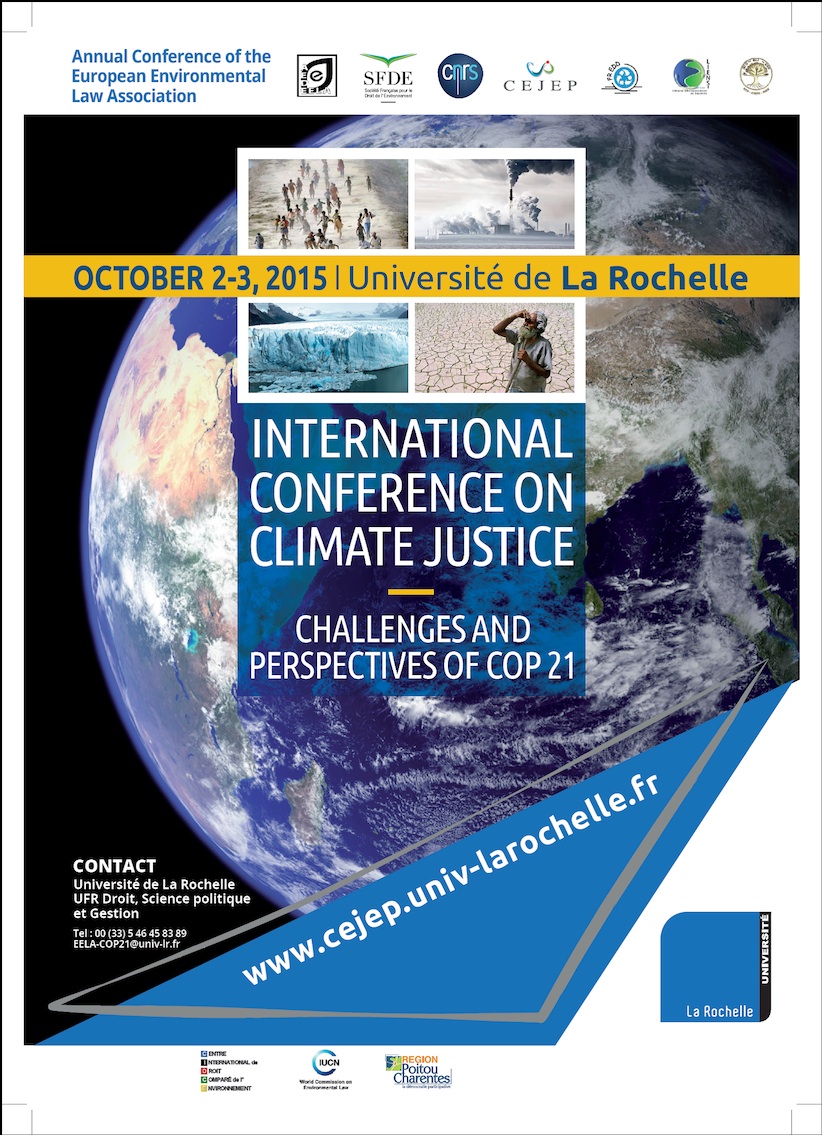CLIMATE JUSTICE — COP 21 : Challenges and perspectives

COP 21 : Challenges and perspectives
University of La Rochelle 2-3 October 2015
website : registrations
From 30 November to 11 December 2015 France will hold the presidency of the UN Framework Convention on Climate Change (COP21 / CMP11). This is a particularly important event that should lead to the adoption of a new international agreement which will apply in all countries and will provide for the maintenance of global warming at under 2° C.
The Kyoto Protocol no longer meets the challenge of continuing climate change. Therefore, there is a need for a new ambitious agreement which will be binding, innovative and efficient, while taking account of the current global political, socio-economic and ecological equilibrium.
It is of critical importance to understand the respective capabilities of the countries affected by climate change and to find a dynamic way of implementing the founding principle of common responsibility, on a differentiated basis.
Currently, developed countries are responsible for less than half of the global emission levels of greenhouse gas. Therefore, emerging countries play a key role in the formulation of global climate policies. In a world with limited natural resources and limited production capabilities, ecological imbalance leads to environmental degradation and increases environmental risk.
There is a widespread demand, throughout the world, seeking to denounce the ecological debt created by countries whose economic activities leave an enduring ecological impact upon the environment.
New solutions and agreements are needed to define a new economic order based on responsible, ethical and equitable relationships. If agreement is not reached, the international community may face irreversible environmental decline. Climate change threatens not only development capacity but also the stability of international relations. Climate change gives rise to challenges to some of the most fundamental human rights, such as, access to water and food and the right to health.
Reducing climate change related risks requires a two-handed approach : on the one hand, reduction of human based greenhouse gas emissions and on the other hand adaptation to climate change. This approach should form the basis of policies at international level and, if these policies are sufficiently coherent, they should equip the international community with the necessary tools to reduce emissions and adapt to the changes that lie ahead.
The European Union is willing to adopt a firm and ambitious common position. However, this could be undermined by the current positions of individual member states, who may not agree on the measures and policies which must be adopted to achieve this.
The theme of climate justice is an important topic and discussions upon it will also involve discussion on impacts on the future of International and European Law, Environmental Law, Law and the economy, human rights, international security and biodiversity. Therefore, climate justice is an issue which should be at the top of political agendas, however a long term vision is necessary and this requires the input of the academic community.




